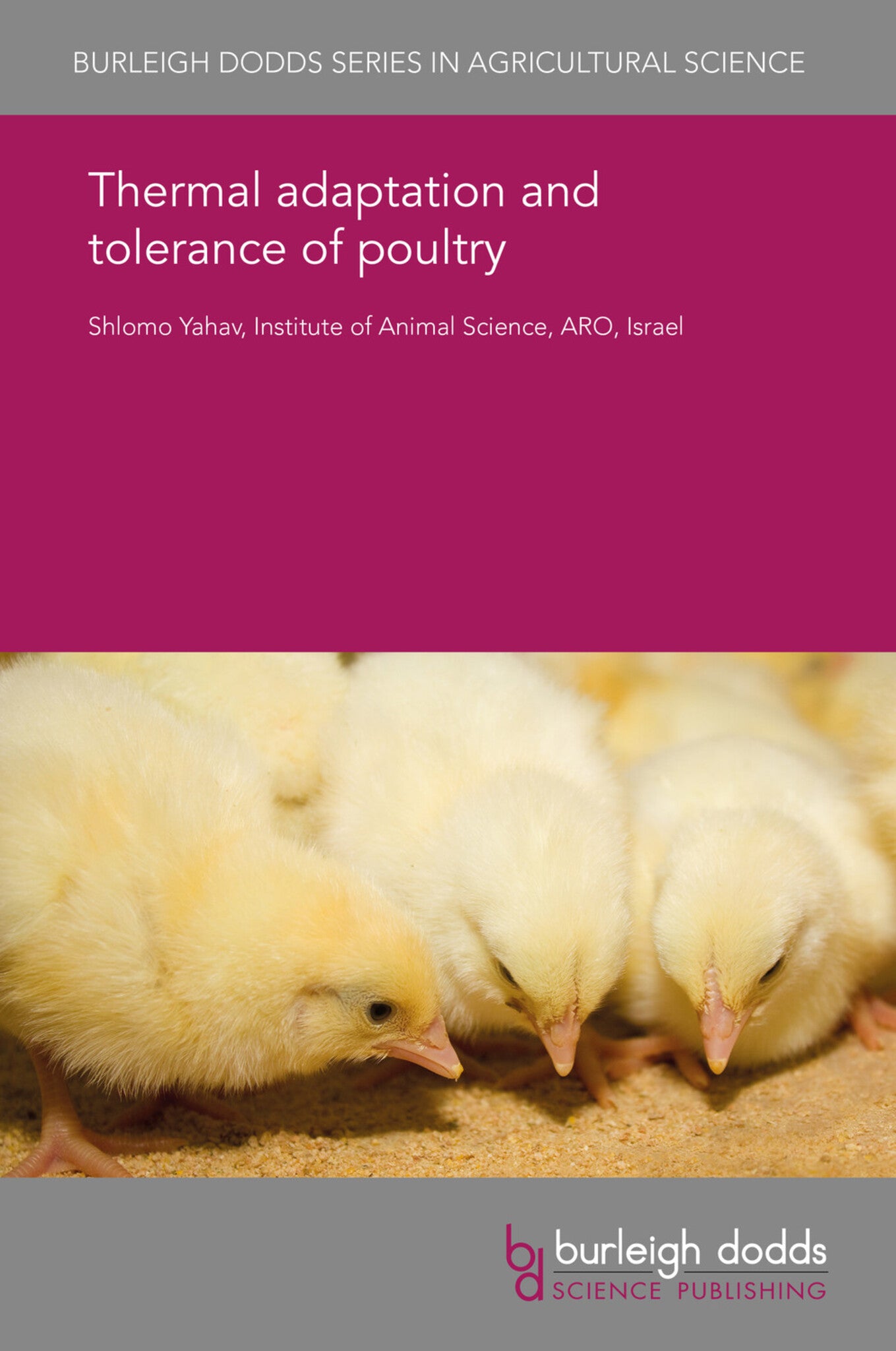We're sorry. An error has occurred
Please cancel or retry.
Thermal adaptation and tolerance of poultry
Regular price
£25.00
Sale price
£25.00
Regular price
£25.00
Unit price
/
per
Sale
Sold out
Re-stocking soon
Fowls are endothermic species controlling body temperature (Tb) within a relatively narrow range, despite moderate to extreme changes in environmental conditions. Tb is recognized as the main chara...
Read More

Some error occured while loading the Quick View. Please close the Quick View and try reloading the page.
Couldn't load pickup availability
- Format:
-
31 July 2016

Fowls are endothermic species controlling body temperature (Tb) within a relatively narrow range, despite moderate to extreme changes in environmental conditions. Tb is recognized as the main characteristic that reflects thermal status. Significant developments in the genetic selection of domestic fowl enhanced performance-improved feed efficiency and increased metabolic rate, leading to low capability to balance energy expenditure and maintain body water balance under extreme environmental conditions. This chapter will focus on the effect of combinations of environmental conditions (temperature, ventilation, relative humidity) on thermal status and performance parameters of broilers, turkeys and laying hens. Furthermore, it will offer the use of epigenetic temperature adaptation during embryogenesis as a tool to improve thermotolerance and performance.

Price: £25.00
Publisher: Burleigh Dodds Science Publishing
Imprint: Burleigh Dodds Science Publishing
Series: Burleigh Dodds Series in Agricultural Science
Publication Date:
31 July 2016
ISBN: 9781838792336
Format: eBook
BISACs:
TECHNOLOGY & ENGINEERING / Agriculture / General, Agricultural science, TECHNOLOGY & ENGINEERING / Agriculture / Animal Husbandry, TECHNOLOGY & ENGINEERING / Agriculture / Sustainable Agriculture, Sustainable agriculture, Organic farming, Poultry farming

- 1 Introduction;
- 2 Body temperature control by endothermic birds;
- 3 Neuronal and endocrine Tb regulation;
- 4 Different strategies to cope with the environment;
- 5 Physiological and cellular responses to changes in the environment;
- 6 Ambient temperature, ventilation and RH: the effects on thermal status and performance;
- 7 Thermal manipulations during incubation – an epigenetic approach to improving thermotolerance and performance;
- 8 Conclusions;
- 9 Where to look for further information;
- 10 References



